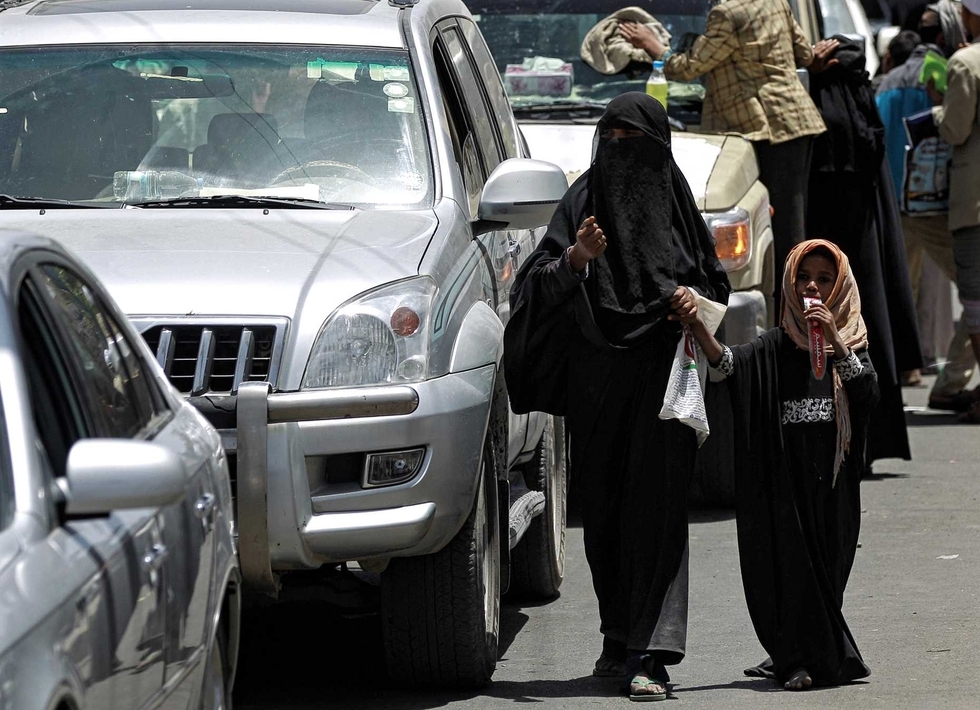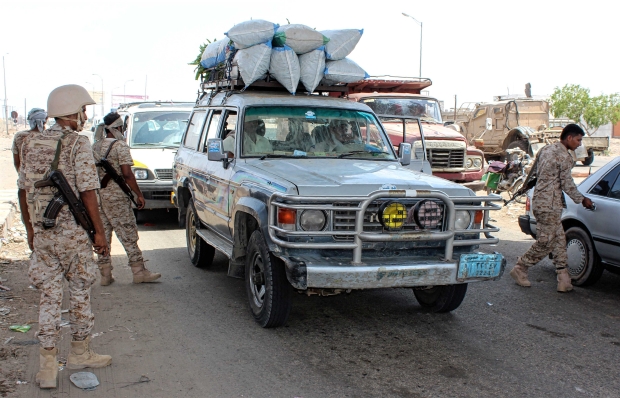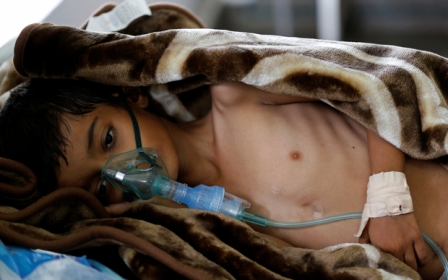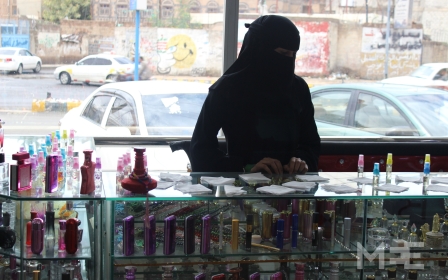Gangsters in war-torn Yemen ensnare women to do their dirty work

Teenager Asma Mahboob was alone in the family home on that fateful Thursday night in September.
The rest of her family, who live in Aden, Yemen, were away at a neighbour’s wedding; Asma, 13, had chosen to stay at home. Her father, Mohammed, had told his daughter not to open the door to strangers as there had been talk in the Crater district, where they live, of thieves operating in the area.
Then there was the knock at the door.
Asma recognised the voice as a friend of her mother’s, someone from a poor family whom her mother used to help. And it was early – only 7pm. The young teen let the woman into the home and then went to make them both tea.
It was while Asma was distracted that the visitor opened the door - and let in fellow gang members who stormed the family home.
New MEE newsletter: Jerusalem Dispatch
Sign up to get the latest insights and analysis on Israel-Palestine, alongside Turkey Unpacked and other MEE newsletters
The thieves, who Mohammed believes had been watching the house, tied the teenager up before escaping with jewellery valued at about YR100,000 ($400), $160 hidden in a clothes cupboard and other belongings valued at $80.
"My daughter identified the woman,” said Mohammed, “and I made a complaint in the police station against this woman. But when the police went to her family's house, they confirmed she had left the house three months ago and they do not know anything about her."
The rise of female crime
What happened to Asma and her family is part of a growing trend in war-torn Yemen.
Police in Aden confirmed to MEE that it was rare to arrest female criminals in the city before the war. But those numbers have increased since the beginning of 2015, due to the perilous state of the economy sparked by the ongoing conflict.
'Conservative society participates in the crime, as many women want to return to their houses, but they fear society'
"During the period from January to the end of June 2016, security forces in Aden arrested 37 female criminals,” Abdurrahman al-Naqeeb, the spokesperson for Aden's police, told MEE. “They are accused of different things, including drug dealing, money forgery, robbing homes and other crimes. These women are in the prison and the investigations are ongoing.”
MEE asked police if it was possible to interview the women prisoners but was refused access.
Aden has seen a change in policing leadership compared with before the war, said Naqeeb, so numbers are tough to compare. But the anecdotal evidence is that female police, who deal with women criminals, have seen more complaints since early 2016.
Yemen is a conservative society, where the police and security forces do not regard women as potential criminals. For example, female soldiers, who deal with investigations into women, are not stationed at street checkpoints: simply there is seen to be no need.
But now, Naqeeb said, gangs are exploiting poor women who have no one else to support them, luring them into drug running, money forgery or other criminal activities. Any trial against them is fair, Naqeeb, said, and they submit to Yemeni law.
Why it's a social problem
Aden is not the only province which has seen a rise in women lured into crime.
Nabil Fadhel, head of the Yemeni Organisation for Combating Human Trafficking, confirmed that poverty is the main reason why women join gangs - but it is social pressure that then stops those women returning home.
He said that drug dealers and other criminal gangs gradually lure poor women into criminal activity by promising them legitimate work but then exploit them sexually. The women then believe they have brought shame upon their families and do not feel they can return home, given the conservative nature of Yemeni society.
Indeed, Fadhel said, when the family of a female criminal discover their daughter has joined a gang, they try to keep it secret to avoid the social shame. Instead, they tell people that their child has left home to move to another area.
The end result? The women stay with the gangs, some of which exploit women to transfer drugs between provinces in cars, while older women are used to recruit new female members.
"Conservative society participates in the crime," Fadhel said, "as many women want to return their houses, but they fear society. So those women come under the control of the gangs and they do any tasks that are required of them.”
Men need to take more responsibility
Fadhl al-Thobhani, a social professor at Taiz University, said the Yemeni government had yet to provide any help for women caught up in crime as before the war such incidents were rare. Now, however, action is needed.
He urged the government to open rehabilitation centres and make society accept the women after they had finished their treatment. “If the government does not do this, then those women will definitely continue to bother society and there will be fresh casualties," he told MEE.
'If the police arrest the thieves, then I can have my money returned. But no one can erase the bad memories from my daughter's mind'
- Mohammed Mahboob, father
Amal Ali, a social activist in Aden, likewise sees the issue as a social one. In Yemen, she said, men usually control and take responsibility for women and their safety. Now it is their duty to protect female family members from gangs or other threats.
She told MEE that Islam says men are responsible for women, whom society regards as weaker, and that men can prevent them doing anything. "If men provide for the livelihood of the women and their families, then women will not join illegal gangs.”
For Mahboob and his family, the scars of that fateful night in September still linger.
"I do not care about money,” Mahboob said, who said the worst impact had been on his daughter. “She is suffering from psychological trauma and she cannot sleep well because of nightmares.
“If the police arrest the thieves, then I can have my money returned,” he explained. “But no one can erase the bad memories from my daughter's mind."
Middle East Eye delivers independent and unrivalled coverage and analysis of the Middle East, North Africa and beyond. To learn more about republishing this content and the associated fees, please fill out this form. More about MEE can be found here.






